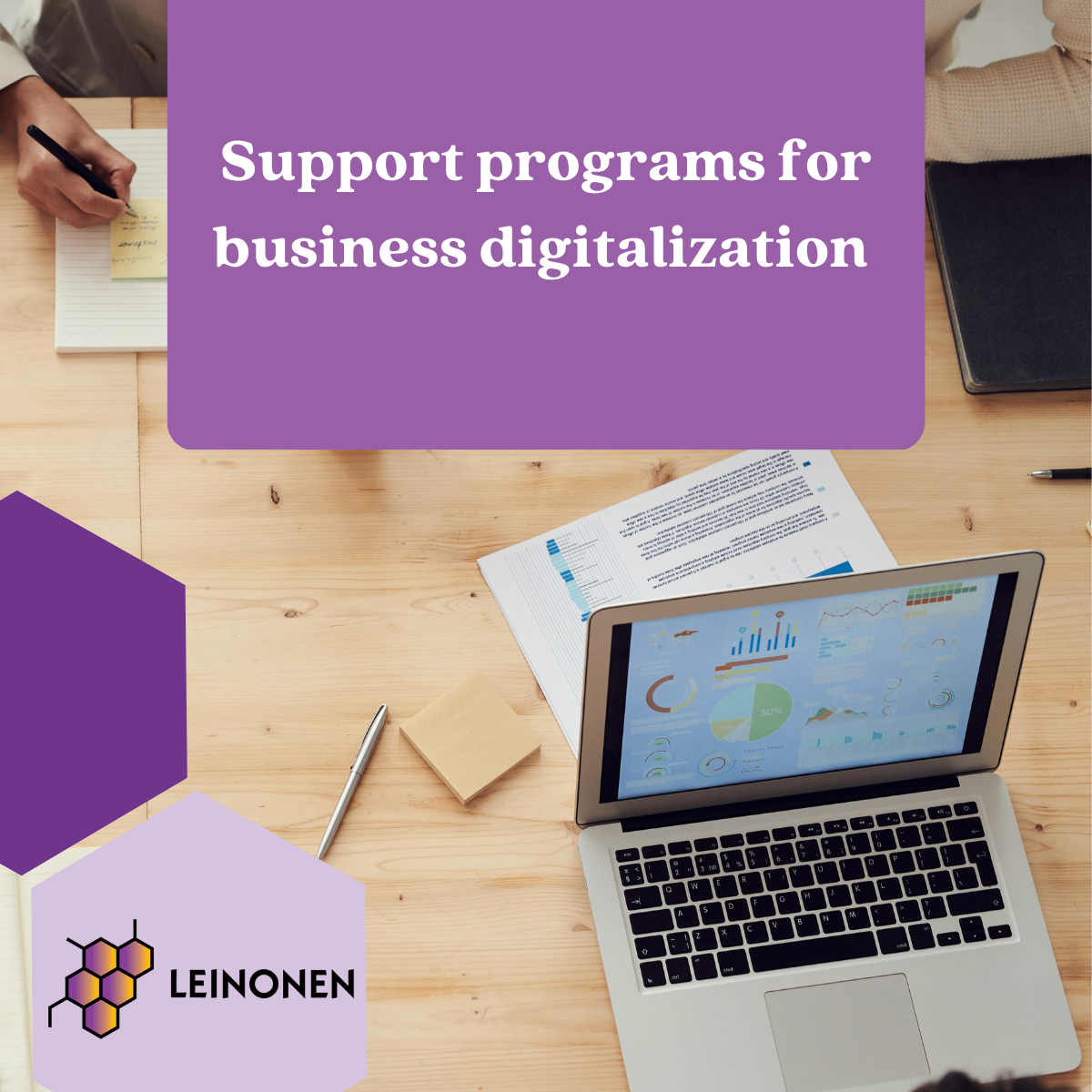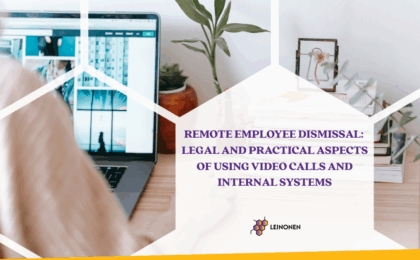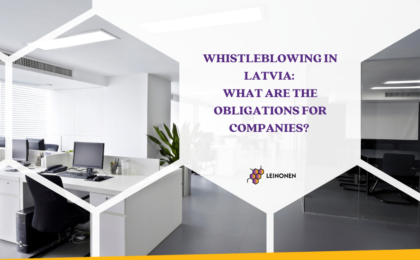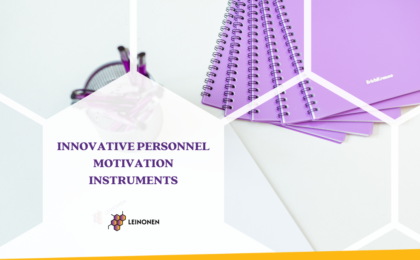On February 22 of this year, the first three support programs of the Recovery Fund were opened for businesses:
- “Aid for Creation of Digital Innovation Centres and Regional Contact Points” with the aim to promote European Digital Innovation Centres (EDIC) included in the single EU network.
- “Financial Instruments for Promotion of Digital Transformation of Economic Operators” – aid from “Development Finance Institution Altum” (ALTUM) as a loan with a capital discount.
- “Aid for Digitalisation of Processes in Commercial Activity” which will make available to the economic operators aid from the Latvian Investment and Development Agency (LIAA) by the way of vouchers.
The aid programmes provide aid to economic operators in the amount of EUR 95.14 million and have been created with an aim to promote digitalisation of processes, automation and robotisation in commercial activities by investing in technological solutions and innovations, as well as by changing the production processes.
Digital maturity test and digital development roadmap
To be eligible for receipt of aid, this time, entrepreneurs will start with taking the digital maturity test and development of the digital development roadmap. This is provided by two EDIC centres in Latvia: Information Technology Cluster of Latvia (https://dih.lv/lv) and Digital Accelerator of Latvia (https://www.digitallatvia.lv/).
Digital maturity test will assist in evaluation of the current situation of digital technologies at the company and identify areas where investments are necessary, and development of the digital development roadmap will provide an enhanced assessment on actions the beneficiary of the aid should take to promote the digital transformation and planned outcome of the project.
EDIC will provide the economic operators with advice and mentoring in digital transformation, assist in implementation of the latest digital technologies, processes, products, and services by providing the technical expertise, training, and development of skills, as well as assist the economic operators in preparation of the project applications to receive the aid from LIAA and ALTUM.
LIAA aid – grants in the form of vouchers
One economic operator can submit several applications for aid on condition that the previous project has been implemented or rejected.
| Type of aid (vouchers): | up to EUR 5,000 (de minimis aid) | up to EUR 100,000 (both the Regional Aid and de minimis aid) |
| Aid intensity: | 100% | 30% – 60% (determined according to the company’s size and actual region of project implementation) |
| Beneficiaries of the aid (registered in Latvia): | Micro and small economic operators. | Micro, small, and medium enterprises (SME); large economic operators, research and knowledge dissemination organisations; associations and foundations. |
| Project implementation: | during 12 months | during 24 months |
| Purpose: | For development or implementation of the digital products, services and applications, as well as for digital solutions intended for transformation of their services, products, or processes. |
| Programme financing: | 40.14 million EUR |
| Supported activities: | 1. Administrative processes: finances and accounting, administration, document management, project management, joint activities, compatibility of systems; 2. Personnel management processes: human resources management, working time accounting, work delegation, personnel involvement, assessment, and motivation; 3. Sales processes: customer recruitment and business management automation, sales, and business traceability, e-commerce, digital marketing, digital retail solutions, customer relationship management (CRM); 4. Resource management processes: enterprise resource planning (ERP, warehouse management systems), energy resource management, effective use; 5. Data management processes: data security, data retention, communication infrastructure; 6. Transport and logistics processes: Internet of Things, smart mobility solutions, reception systems, traffic monitoring; 7. Production and quality control processes: production and business process management and automation, quality control systems, data synchronisation, data analytics; 8. Operative management processes: business management, business analytics, the big data analytics, solutions for management decision-making, data automation, synchronisation; 9. Strategic management: digitalisation (processes and products) and innovation development strategy; 10. other products, technologies of information and communication technologies, improvements related to security or processes. Products and services should be procured in accordance with laws and regulations governing the area of public procurements, signing a service contract within the period of 2 months since the moment of entering into the aid contract with LIAA. |
| Activities which are not supported: | · Purchase of standard office equipment and hardware which is necessary to ensure the basic internal functions; · Support of existing software and information systems, except security tests; · Supplementation of the existing software with a new functionality for users; · Adaptation of the existing software, except implementation of security improvements and synchronisation of new software to implement the objectives of the aid programme in commercial activities; · Preparation of the user’s documentation; · Investments already made into internal functions and processes; · Purchase of immovable property; · Activities already initiated at the moment when the application for aid has been submitted to LIAA; · Activities related to export; · Activities granted on condition that the local products are used instead of imported goods. |
| Eligible costs: | · Costs for purchase, installation, and adaptation of ready-made solutions, hardware, sensors, equipment, software, and information technology infrastructure; · Consultation costs on strategic management of the relevant equipment, software, solutions, commercial activity in the area of digitalisation; · Limited periodic (monthly, quarterly, or annual) costs up to 30 June 2026 for the use of software or purchase of licences related to the equipment. |
| Ineligible costs: | · Costs for the value added tax; · Costs related to preparation and advice on draft application; · Costs for purchase of cargo loading, unloading, lifting, transport, and storage equipment. |
| Sectors not supported by the programme: | · Agriculture, fishing and aquaculture sector; · Trade of alcohol, arms and ammunition; · Production and trade of tobacco products; · Gambling and betting. Sectors that may be financed only within the framework of de minimis aid (aid limited at the level of one unified company up to EUR 200,000 within the period of three fiscal years): · Steel sector, coal sector, shipyard and synthetic fibre production sector; · Energy production, distribution, infrastructure; · Transport sector; · For regional aid in the form of such schemes as intended for a limited number of specific sectors of the economic activity; · Financial and insurance activity; central office activity; consultation in business and management; · production and trade of tobacco products; · Agriculture, fishing and aquaculture sector. If an economic operator represents eligible and non-eligible sectors at the same time or performs not supported activities, it may apply for the aid by ensuring that these activities or costs are separated. |
| Restrictions on receipt of aid: | The aid will not be issued to economic operators which: · have a tax debt exceeding EUR 150 (does not apply to tax payments with a granted extension of payment period, with an agreement on voluntary tax payment; or a signed agreement on arrangements); · there are signs of a company in difficulty*; · imposed international or national sanctions. |
| Receipt of aid: | within 30 days after implementation of the investment project and submission of the following documents to LIAA: · documents supporting costs, · repeated digital maturity test; · positive opinion of EDIC. |
| Aid period: | Until 30 June 2026 or while financing is available. |
| Data retention: | 10 years since the date when decision on granting the aid has been made. |
| Illegal aid: | If violation of obligations for receiving the aid is established, the economic operator is obliged to repay from its own resources to the LIAA the whole State aid received illegally together with interest. |
| The programme is governed by: | Cabinet Regulation No. 10 of 10 January 2023. |
ALTUM aid – a loan with the capital discount
| Type of aid: | A loan for investments in new tangible and intangible assets: · the parallel loan – provided together with another financier* · the direct loan** – ALTUM is the only creditor *A credit institution, its branch or subsidiary, leasing company or investment fund eligible to provide financial services in the Republic of Latvia, or an international institution (e.g., European Reconstruction and Development Bank, European Investment Bank, Nordic Investment Bank, Council of Europe Development Bank). **If the loan is necessary only in the amount of the capital discount, or a request for financing has been submitted to a credit institution, and the credit institution has refused to finance the project. |
| Purpose: | To promote digitalisation, automation, and robotisation. |
| Programme financing: | 45.14 million EUR |
| Beneficiaries of aid: | Micro, small, and medium enterprises (SMEs) and large economic operators registered in Latvia. |
| Sum of aid: | A loan in the amount of EUR 100,000 – 7,000,000. |
| Aid intensity: | in the amount of 30% – 60% (determined according to the company’s size and actual region of project implementation). |
| Supported activities: | 1. Digitalisation of the traditional processes; 2. Purchase and implementation of 4.0 solutions for the industry – automated equipment, robot solutions, sensor networks and communication technologies, artificial intellect solution technologies and other solutions appropriate for the objective of the investment by using information and communication technologies and providing for the necessary equipment and software components; 3. Purchase of systems and equipment functioning in 5G network; 4. Data retention solutions; 5. Restoration and improvement of efficiency of production and other equipment necessary for digitalisation of processes, and purchase of new equipment; 6. Purchase of new equipment in the area of information and communication technologies related to the use of information and communication technologies in the process of production; 7. Platform economy – creation and provision of solutions or systems operating in one platform. |
| Activities which are not supported: | · Purchase of standard office equipment or computer hardware; · Support of existing software and information systems; · Supplementation of the existing software with a new functionality for users; · Adaptation of the existing software; · Preparation of the user’s documentation; · Covering of the value added tax; · Purchase of the immovable property, including land; · Construction costs (an exception: minimum necessary construction costs to install the equipment purchased during the project not exceeding 10% of the eligible costs of the project). |
| Restrictions on receipt of aid: | The aid will not be available to economic operators if: · the project has been initiated before applying for the loan from ALTUM and/or it is not economically viable, and/or its implementation does not take place in Latvia; · the investment is intended for power production equipment (incl. for own consumption); · tax debts exceed EUR 150 (does not apply to tax payments with a granted extension of payment period, or with a signed agreement); · the economic operator shows signs of a company in difficulty*. |
| Loan period: | Up to 10 years. |
| Sectors not supported by the programme: | · Agriculture, fishing and aquaculture sector; · Trade of alcohol, arms and ammunition; · Production and trade of tobacco products; · Gambling and betting, financial and insurance activities; · Transactions involving real estate. Sectors that may be financed only within the framework of de minimis aid (aid limited at the level of one unified company up to EUR 200,000 within the period of three fiscal years): · Coal mining sector; · Synthetic fibre production sector; · Steel sector; · Shipyard sector; · Energy production, distribution, infrastructure; · Transport sector. If an economic operator represents eligible and non-eligible sectors at the same time or performs not supported activities, it may apply for the aid by ensuring that these activities or costs are separated. |
| Aid period: | The aid is granted until 31 December 2025. |
| Grant element: | Capital discount is applied within 6 months after completion of the project and submission of a positive EDIC opinion, covering the principal amount of loan up to 35% from the total costs of the project (in line with conditions of the State aid regional intensity), but not exceeding 1 million EUR. |
| Data retention: | 10 years since the date when decision on granting the aid has been made. |
| Illegal aid: | If violation of obligations for receiving the aid is established, the economic operator is obliged to repay from its own resources to the ALTUM the whole State aid received illegally together with interest. |
| The programme is governed by: | Cabinet Regulation No. 421 of 5 July 2022. |
This year, the Ministry of Economics plans to implement two more new Recovery Fund aid programmes to promote digital transformation of companies:
- The aim of the programme “Development of Digital Skills of Businesses” will be to improve the digital skills of SMEs and large economic operators, including skills facilitating export, skills in high-level digital management by the company management, and skills in use of the digital technologies in various business processes;
- The aim of the programme “Aid for Implementation of New Products and Services in Business” will be to provide grants for development of new digital products, technologies, and services to increase the private research and development costs by using targeted State investments.
If you require any assistance in attracting the aid described above, contact Leinonen SIA.
Additionally, we can also support you in attracting financing within other projects as well:
- EU fund projects;
- ALTUM aid programmes;
- attracting financing from credit institutions and other financial institutions for making investments or for current assets.
Ilona Adamaite
Investments and Finance Advisor
ilona.adamaite@leinonen.lv
+371 24 664 392




